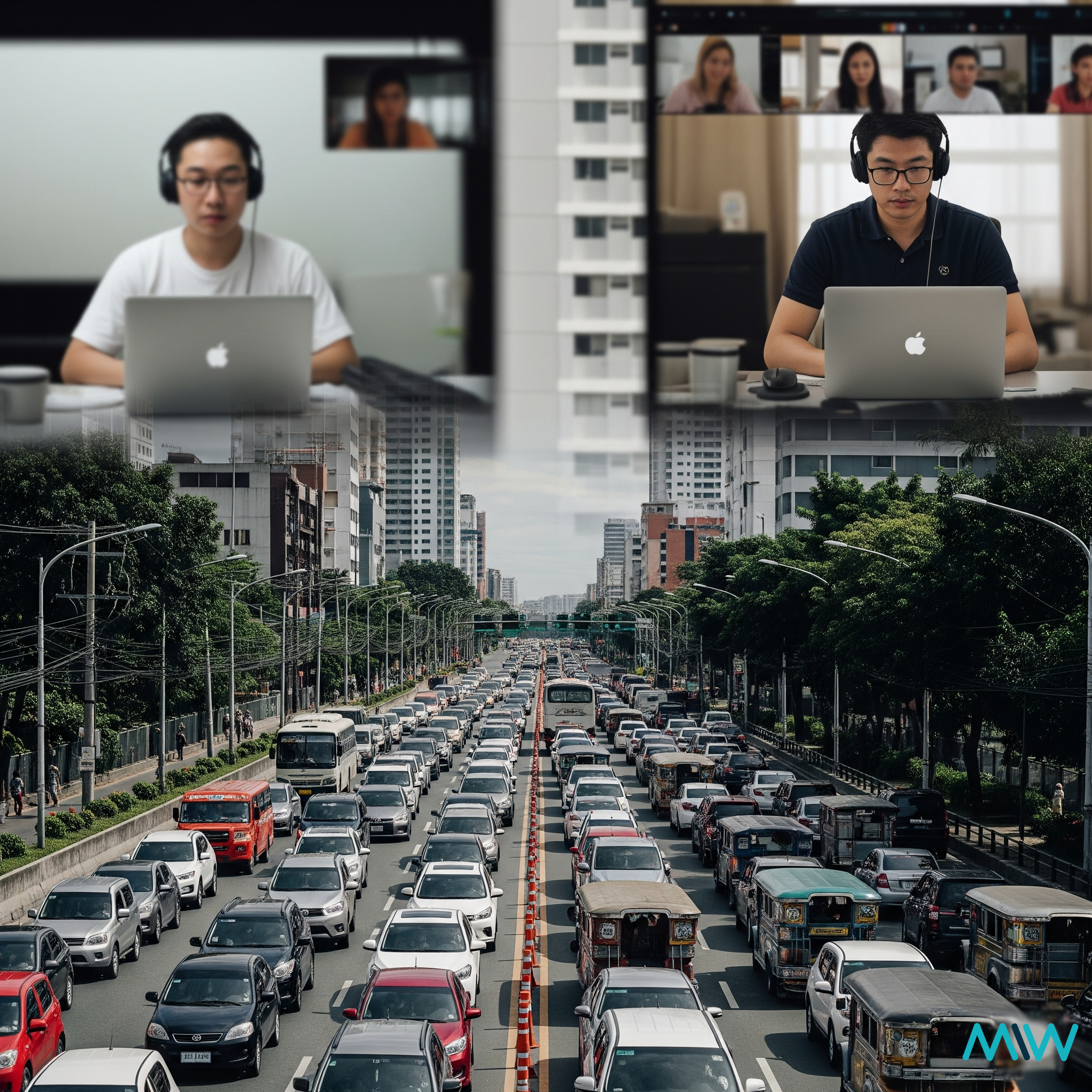Metro Manila is bracing for a significant challenge as the major rehabilitation of EDSA, one of its primary thoroughfares, is set to commence next month and is expected to last for at least two years. This crucial infrastructure project, while essential for future connectivity, is anticipated to cause disruptions to daily commuters and potentially impact commerce across the capital.
In response to this looming traffic gridlock, the Department of Labor and Employment (DOLE) has issued a timely recommendation, urging companies to adopt work-from-home (WFH) and other flexible work arrangements. Labor Secretary Bienvenido Laguesma highlighted that such schemes offer a viable solution to mitigate the adverse effects of the roadworks, ensuring that employees are not unduly burdened by traffic while maintaining business continuity. He underscored the success stories from the recent pandemic, where flexible work proved instrumental in keeping the economy afloat and safeguarding employee well-being.
For MIW, DOLE’s current push resonates deeply with a principle we have championed long before it became a widespread necessity. Since the onset of the pandemic, MIW has been a steadfast proponent of flexible work arrangements, including work-from-home. We recognized early on the immense potential of remote work not just as a crisis response, but as a sustainable and progressive model for the future of employment in the Philippines. Our own experience and observations have consistently shown that with the right infrastructure and management, flexible work can lead to increased employees productivity, improved work-life balance, and enhanced overall job satisfaction.
Beyond merely avoiding traffic, the advantages of embracing flexible work has many-sides. It reduces the daily stress and financial burden on employees associated with commuting, leading to a healthier and more engaged workforce. It also contributes to environmental sustainability by lowering carbon emissions from vehicles. For businesses, flexible models can lead to reduced operational costs, access to a wider talent pool, and improved resilience against unforeseen disruptions – be it a pandemic or a major infrastructure project.
While DOLE’s call is a strong endorsement, it’s important to note that the implementation of flexible work schemes remains voluntary for companies. This places the employers to proactively evaluate their operations and consider the tangible benefits of adopting these forward-thinking approaches.
MIW firmly believes that now, more than ever, is the opportune moment for businesses to embrace flexible work. It is not just about navigating the upcoming EDSA rehabilitation; it is about building a more adaptive, resilient, and employee-centric work culture. By aligning with DOLE’s recommendation and recognizing the proven benefits, companies can turn a potential challenge into an opportunity for growth and innovation. As a firm committed to fostering progressive work environments, MIW encourages all enterprises to explore and implement flexible work solutions, proving that productivity and employee well-being can indeed go hand-in-hand, even amidst urban challenges.
Related:
With EDSA rehab looming, DOLE urges companies to do work-from-home schemes
Cloud Technology’s Impact on Recruitment: Automation, Efficiency & More

Dave’s offshore track record as Recruitment Manager (Wadi Jobs) and Systems Analyst (Gulf Dynamic) brings a broad framework for MIW’s HR, IT, and Digital Transformation excellence. His ISO 9001/14001 Compliance Delivery (Millennium Offshore) and various consultancy engagements provides a wide-range boots-on-the-ground innovation towards MIW’s mission critical roadmap.




